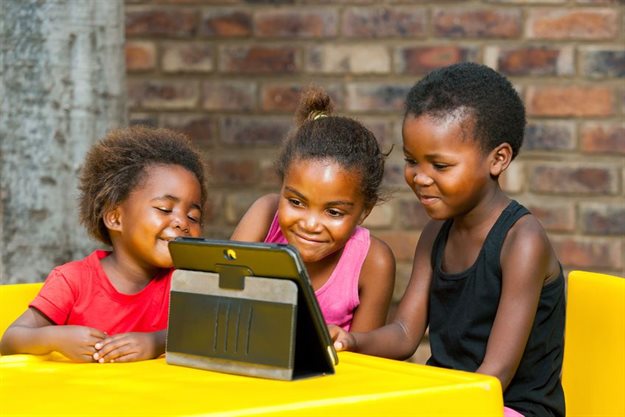
Global literacy rates have accelerated rapidly in recent decades as communication technology becomes more widely accessible, even in the most remote regions.
While only 12% of the world’s population could read and write in the year 1820AD, the reverse is now true—only 17% of the world remains illiterate today.
In just 65 years, literacy grew 4% every five years, from 42% in 1960 to 86% in 2015. In Africa, 38% of African remain illiterate, but this is also fast declining.
Intelligent machines are taking over most jobs traditionally done by humans, particularly manual labour, and people around the world are compelled to seek work in the knowledge economy — the definition of illiteracy will change vastly.
As the general standard of living improves, urbanisation continues to grow and people are exposed to a more pervasive media presence, reading will be a requirement for daily survival and not just a preserve of the so-called “educated”. Mobile devices, digital money and the need to communicate via text will necessitate basic writing skills for all.
However, in order to elevate one’s life to more meaningful economic activity, citizens in an increasingly global economy will need to have a more substantial level of literacy that goes beyond just identifying and reproducing words on paper.
From a young age, students in even the most remote locations will need to come to grips with what it means to live in a tech-powered world as the fourth industrial revolution materialises beyond its theoretical status to real-life services and infrastructure.
Increasing digitalisation means that more industries are moving away from paper-based processes to digital ones.
For instance, rather than keeping paper-based attendance registers, teachers will use digital scanning for themselves and their learners. Artificial intelligence applications will collect data over time and produce very valuable insights that can inform school operations and education in the country as a whole.
The Internet of Things (IoT) will measure everything from weather, traffic and other data in the physical environment, and automated reports will be sent to parents, staff and learners, notifying them all about anything of interest.
To be better prepared for this future, children will be relieved that they won’t have to carry bulky schoolbags between classes anymore, as all their lessons will be on compact mobile devices linked to each other via Bluetooth and connected to wireless networks at home or on campus.
No longer will information be captured only on paper, a process that is open to human error and even abuse. Identification tags will know the exact time of arrival at school, the precise movements of each child and their time of departure.
This places a huge additional responsibility on educators who won’t just be judged on reading, writing and arithmetic skills. Teachers will be assessed on their students’ ability to use the vast array of digital tools and devices coming onto the market.
It also won’t be enough to just be familiar with one software program or how a certain laptop works, but it is important to understand the overarching principles that all computer technology is based on, especially as updates and upgrades become available.
Educators need to bid farewell to the chalkboard and come to grips with terms like “hardware” and “software”. They need to grasp the meaning behind terms such as “programming language”, “user interface”, “app”, “hard disk drive”, “processing speed”, “operating system”, “system security” and others that span across all systems.
It's not just a question of offering teachers a tool to supplement existing methods; digital transformation is an unavoidable reality that even the most tech-phobic will need to adapt totally to. While this might be slightly traumatic to those used to a certain way of doing things, it is a necessary progression to making the world more efficient.
Once they overcome the initial shock, educators will realise that they will be able to keep track of their lessons and each of their students’ progress, eliminating much of the guesswork of shaping young minds.
Smart devices will even go as far as to assist in instantly measuring whether a certain pupil was attentive and interactive during class or disengaged, equipping educators to intervene in a timely manner and ensure a better chance of success.
In line with the President’s announcement and government’s priority to digitalise education, the Eastern Cape Department of Education (ECDoE) has already embarked on a process of bringing classrooms into the fourth industrial revolution by providing educators and learners with smart mobile devices, projectors and other IT tools across the province to advance teaching and learning performance. The Connect, Teach, Learn Project, a part of the province’s e-learning strategy, which is in its last phase of delivering ICT devices to educators, aims to accelerate the adoption, usage and sustainability of ICT in education.
The Department has partnered with Vodacom in implementing the ECDoE Connect, Teach, Learn Project which includes the procurement and distribution of ICT hardware, including the provision of connectivity across various areas of competency. OPECS, Vodacom’s subcontractor has been tasked to manage the project and to ensure the seamless delivery of the change management process for educators and the education system in the Eastern Cape.
The effective uptake of ICTs as teaching and administrative tools to enhance teaching and learning requires coherent and comprehensive change management. Since 2017, a total of 45,594 devices were delivered to teachers across 12 districts in the Eastern Cape.
Better access to data means better insights, which means more targeted interventions and higher levels of accountability. As a result, schools can deliver more relevant lessons to achieve better learning outcomes, even in the most under-resourced schools.
In the words of Alvin and Heidi Toffler in their book Future Shock, the illiterate of the 21st Century will not be those who cannot read and write,
but those who cannot learn, unlearn and relearn.